Girls Score a Goal to End Child Marriage in India
- by Alys Matthews, with reporting by Rashmi Kulkarni
- / Member Spotlight
Soccer is widely regarded as an excellent way for kids to stay physically fit, build social skills and develop self-confidence. In several small Indian communities where ChildFund works, the world’s most popular sport has another, more surprising benefit: empowering girls to resist early marriage.
Meet 16-year-old Raniya. Her home state of Jharkhand, India, is rich in natural resources, known for its waterfalls and ornate Jain temples, but nearly 40 percent of the population lives below the poverty line. Here, the rate at which girls marry before age 18 — which hovers around 47 percent nationwide — jumps to 51.8 percent.
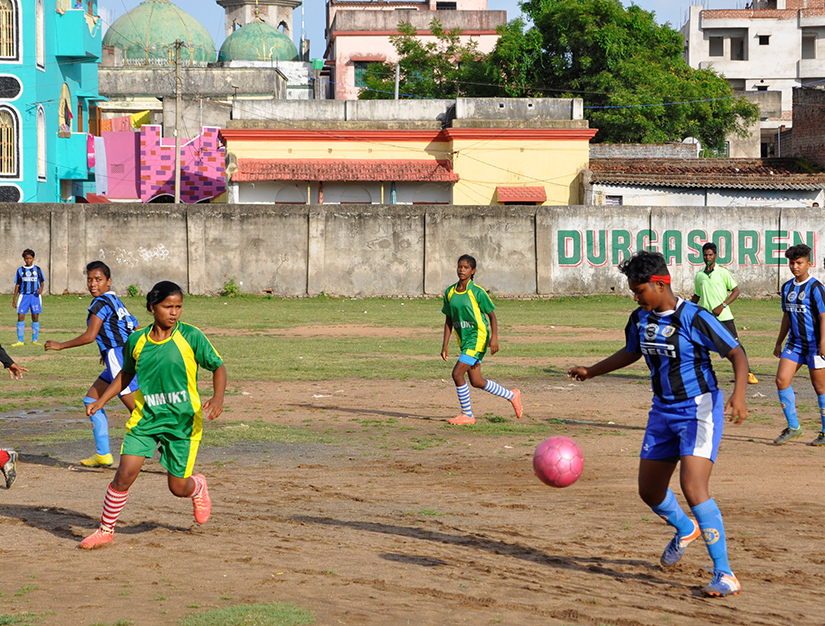 Raniya (left, in green), playing defense in her favorite game: soccer. Raniya joined the team as part of her participation in ChildFund’s Mind Without Fear project, which promotes gender equality in rural Jharkhand, India. Her friends in the program helped her stand up to her parents when they tried to arrange her marriage at age 15.
Raniya (left, in green), playing defense in her favorite game: soccer. Raniya joined the team as part of her participation in ChildFund’s Mind Without Fear project, which promotes gender equality in rural Jharkhand, India. Her friends in the program helped her stand up to her parents when they tried to arrange her marriage at age 15.
As in most parts of the world where early marriage is common, cultural traditions in rural Jharkhand dictate that the only role suitable for a woman is that of wife and mother. Economic hardships often drive parents to marry off their daughters while they are still children, with the reasoning that marriage is their eventual endgame anyway — and doing so means one less mouth to feed.
Raniya says that’s exactly what happened to her. Her father’s work as a daily wage laborer and seasonal farmer didn’t generate enough income to sustain the family, and they struggled to make ends meet. She was 15 when her parents began the process to arrange her marriage.
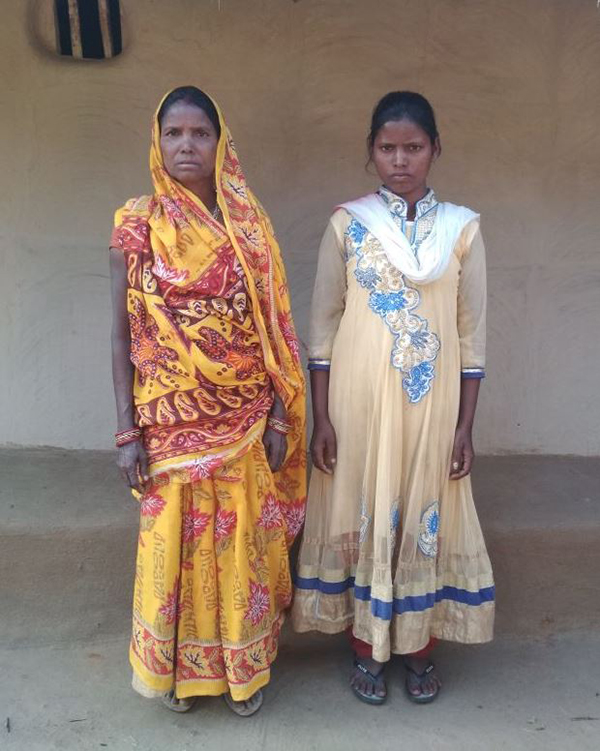
But Raniya knew better than to resign herself to that fate. As a longtime member of the local ChildFund-supported Adolescent Girls’ Club, she frequently heard about the dangers of early marriage: increased risks of domestic and sexual violence, less financial independence, less or no say in matters related to her own health, including any potential pregnancies. She wanted to be more than someone’s wife. She had always dreamed of finishing school and starting her own business.
Plus, getting married meant she’d probably have to quit the soccer team.
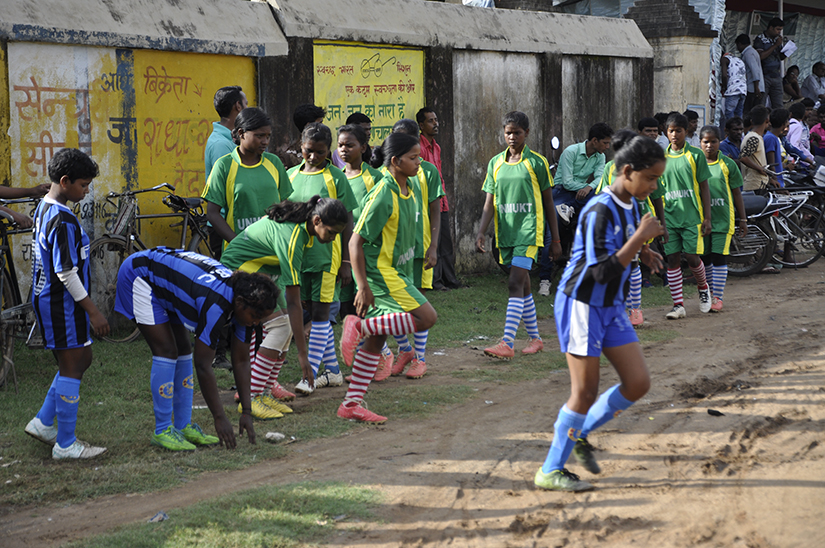
Where Raniya lives, girls are expected to ascribe to traditional norms of femininity in almost every aspect of their lives: what they can wear, who they can speak to, how far they can travel from home. It’s almost unheard of for girls to play sports, let alone in shorts and T-shirts. But ChildFund’s UNMUKT project — an acronym for the Hindi that translates to “Mind Without Fear” — is empowering teen girls from 50 villages around Jharkhand to step outside that box, carve out their own identities and become role models for other girls. It does so in part by encouraging their participation on Mind Without Fear soccer teams.
With their coaches as mentors and their teammates as support, these girls travel for matches, participate in state-level competitions and win prizes, all while learning the value of teamwork, determination and courage — not ideal characteristics for child brides.
“Through ChildFund India and my club mates, I came to know about early marriage’s [risks],” Raniya says, “and I was able to fight back.”
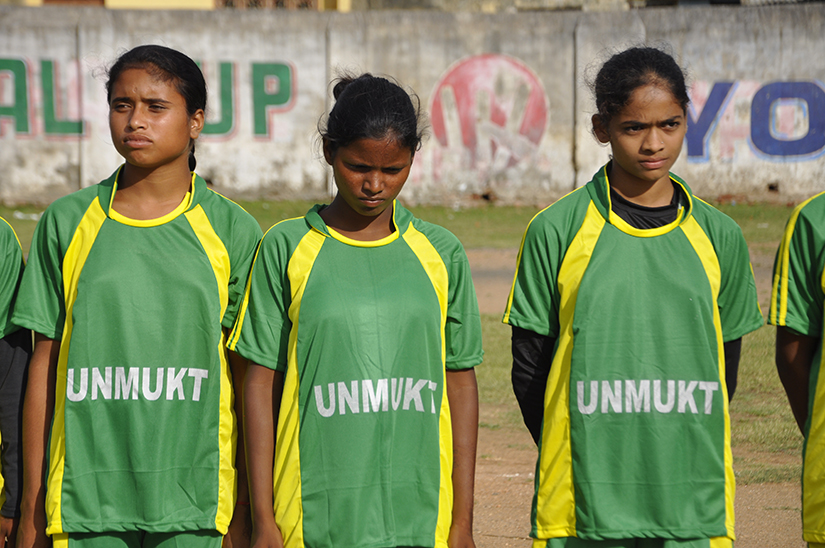
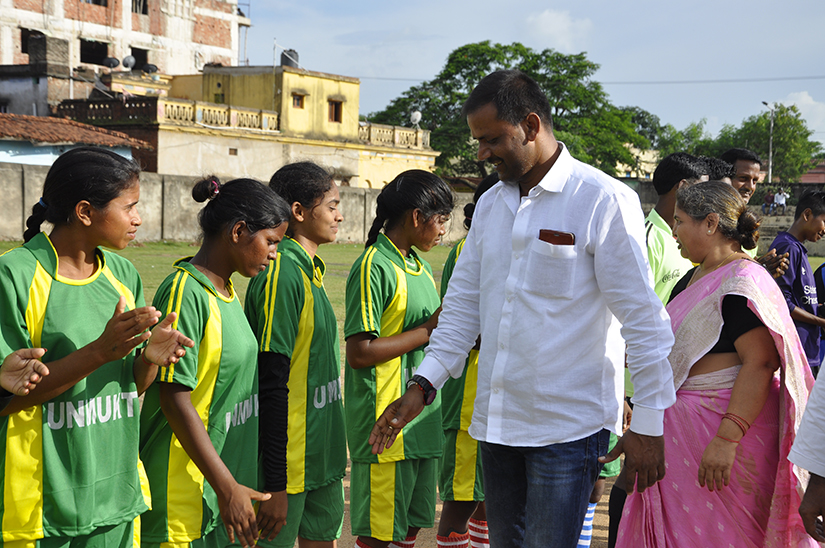
When Raniya told her friends in Mind Without Fear about the impending wedding, the girls immediately came together to visit her parents and try to educate them on the dangers of early marriage.
When that didn’t work, they staged an elaborate nukkad natak — an Indian street play — about early marriage, starring Raniya as the protagonist.
And when that didn’t work, the girls went to the local government. Village leaders met with the family and persuaded Raniya’s parents to let her finish school before getting married.
Raniya’s mother says that before the adults’ intervention, she didn’t fully understand the risks of this culturally entrenched practice.
“We were about to put my child’s life into danger, as we had no idea about the consequences of early marriage,” she says. “I am happy that my daughter is safe now.”
Beyond being safe, Raniya is thriving. After her wedding was canceled, she passed her exams and entered the 11th grade. She continues to play soccer and participate in other activities with Mind Without Fear. She also enjoys mentoring the younger children in her village, who look up to her for her bravery both on the field and off.
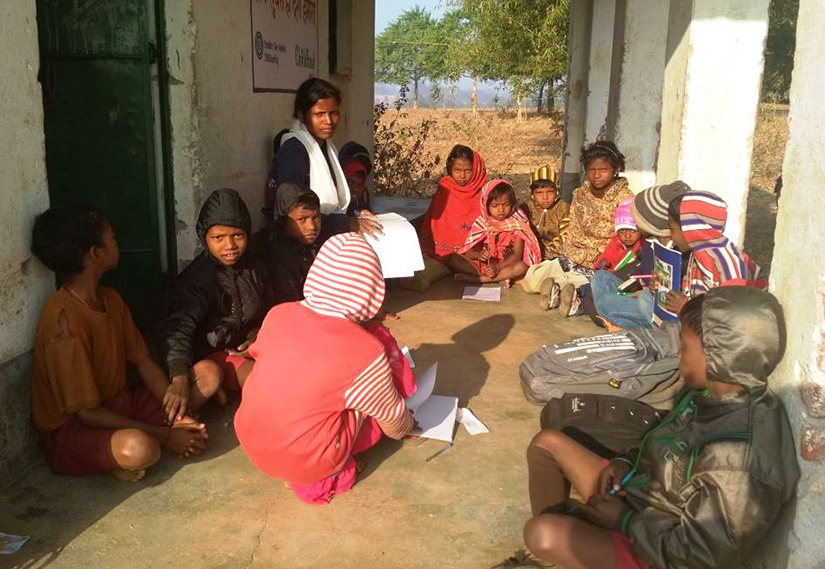
“Today, I am able to continue my education,” she says, “instead of ruining my dream of getting success in my life.”
This story was originally published by ChildFund International on Medium











